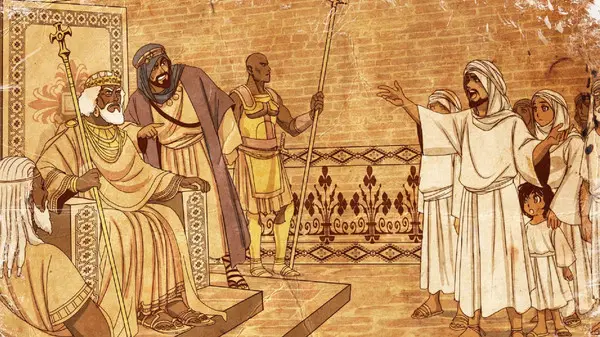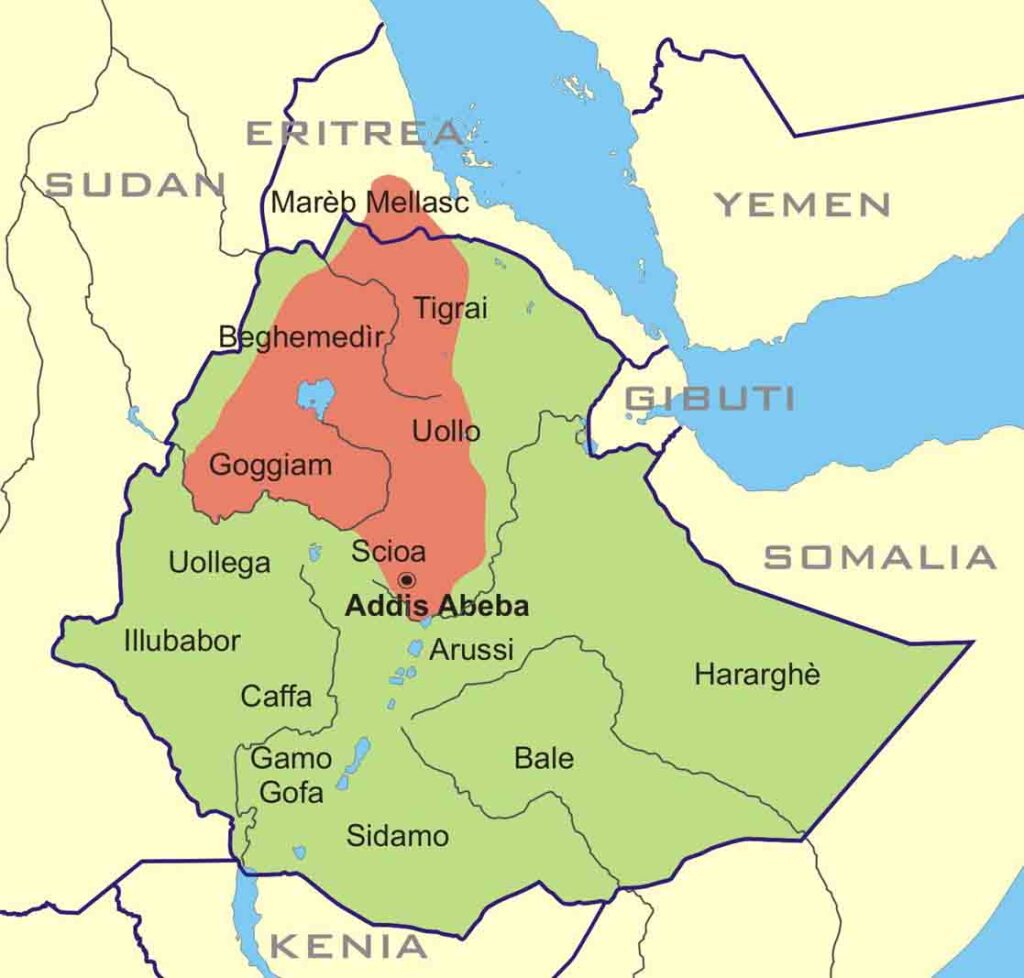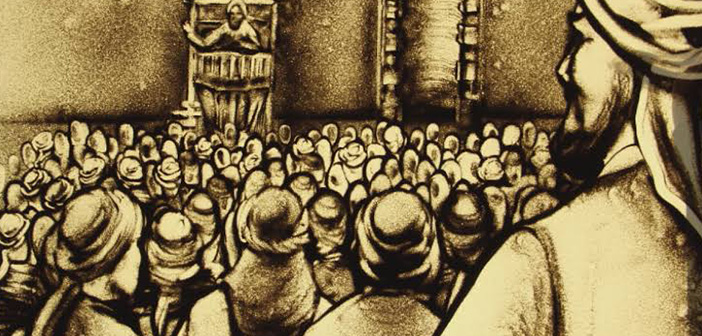
Muslims Migrate to Abyssina
The Prophet (r) saw his followers standing up to their convictions in spite of persecutions,
and his heart was laden with grief.
And since he could do nothing to protect them, he advised his followers to migrate to the country of the Christian ruler, Negus of Abyssinia, who was reputed to be just and kindhearted.
It was a friendly country, said the Prophet (r), where the Muslims could stay until such time as God relieved them of their distress.
Thereupon, ten Muslims left Makkah for Abyssinia. This was the first migration in Islam,
where ‘Uthman Ibn Maz’un was elected as the leader of this first batch of emigrants.
After them J’afar Ibn Abi Talib departed from Makkah, then a number of Muslims followed suit, one after another; some went alone while others took their families with them.
A total of eighty-three persons are reported to have fled to Abyssinia.
QURAYSH PURSUE THE MUSLIMS

The news that the Muslims were living in peace in Abyssinia reached Makkah making the
Qurayshites all the more restless depressed and discouraged.
So they decided to send ‘Abdullah Ibn Abu Rabia and ‘Amr Ibn Al ‘As Ibn Waild as their emissaries, laden with choicest presents of Makkah for Negus, his nobles and chiefs, to get the persons in exile back from Abyssinia.
The agents of the Quraysh first bribed the courtiers of Negus with their presents to espouse their cause before the king, then they presented their gifts to him and said:
“Some foolish young men of our tribe have taken refuge in Your Majesty’s country.
They have abandoned their own religion but neither accepted yours, and have invented a new faith which neither of us know. Our nobles, (who are their elders and guardians) have sent us to Your Majesty so we could get them back from you, for they are closer to them and that they know their faults.”
The bodyguards of Negus who heard this whispered to him in chorus,
“They are correct, surrender the refugees to them”.
But king Negus was enraged; he disliked forsaking those who had sought his shelter.”
He said, “No, by God, I will not surrender them”.
Thereafter, he summoned the Muslims to his court in the presence of his bishops, and asked the Muslims:
“What is that religion for which you have forsaken your people and neither accepted my religion nor any other?”
J’AFAR’S PORTRAYAL OF ISLAM

J’afar Ibn Abi Talib, the cousin of the Prophet (r)
, then rose to explain what the King had asked.
He said:
“O King, we were an unenlightened people plunged in ignorance. We worshipped idols, we ate dead animals, and we committed abominations: we broke natural ties, we mistreated our neighbors and our strong exploited the weak. We thus lived that way, until God raised among us an Prophet (r), of whose noble birth and lineage, truthfulness, honesty and purity we were aware. He invited us to acknowledge the Unity of God and to worship Him, and to renounce the stones and idols our forefathers and we ourselves used to venerate. He enjoined us to speak the truth, to redeem our pledges, to be kind and considerate to our kin and neighbors; he forbade us to refrain from every vice, bloodshed, shamelessness, lies and deceit and asked us neither to encroach upon the substance of orphans nor to vilify chaste women. He commanded us to pay divine homage to Allah alone and never associate ought with Him; he ordered us to pay the poor-due, to observe fast (thus enumerating other injunctions of Islam). We acknowledged his truthfulness and believed in him; we followed him in whatever he brought from God and we worshipped only One God without associating ought with Him; we treated as unlawful what he prohibited and accepted what he made lawful for us. From then on, we were estranged from our own people such that they persecuted us, tried to seduce us from our faith and forced us to take back our idols for our God and they compelled us to return to the abominations we used to commit earlier. So when they tortured and held us under their tyranny and stood between us and our religion, we fled to your country, having chosen you above others for our refuge. We have come here, O King, to your land seeking your protection and we do hope that we shall not be dealt with unjustly.”
Negus listened patiently to J’afar Ibn Abi Talib (t).
Then he asked J’afar if he had something brought by his Prophet (r) from God.
J’afar replied in the affirmative.
Negus asked him to recite the same. Thereupon J’afar recited the opening verses of Soorah Maryam.
(19th Chapter, “Mary”) Negus wept until his beard was wet, as the bishops sobbed until their scrolls were moistened with their tears, too.
DISCOMFITURE OF THE QURAYSHITE EMISSARIES
“Truly, this and what Jesus brought are traditions from the same Heavenly light”, said Negus.
Then turning to the envoys of the Quraysh he continued,
“You may go. By God, I shall never give them up to you.”
Now, the shrewd poet ‘Amr Ibn al-‘As hurled his last shot and what a deadly tirade at that for he said,
“O King, they assert a dreadful thing about Jesus which is even unwholesome to repeat before thee.”
Negus demanded from J’afar ,
“What do you say about Jesus?”
J’afar Ibn Abi Talib replied,
“We say about which our Prophet (r) has taught us. He was a creature of God and His Prophet (r), as well as His Spirit and His Word, which was cast unto the blessed Virgin Maryam.”
Negus took a straw from the ground and said,
“By God, Jesus, son of Mary, does not exceed what you have said by the length of this straw.”
Negus treated the Muslims with honor and pledged his protection to them.
Both crestfallen envoys of the Quraysh had to leave Abyssinia in great shame while the Muslims lived there in peace and security.
for prophets stories visit https://sunofislam.com/prophetsofgod/
for scientific miracles articles visit www.sunofislam.com
